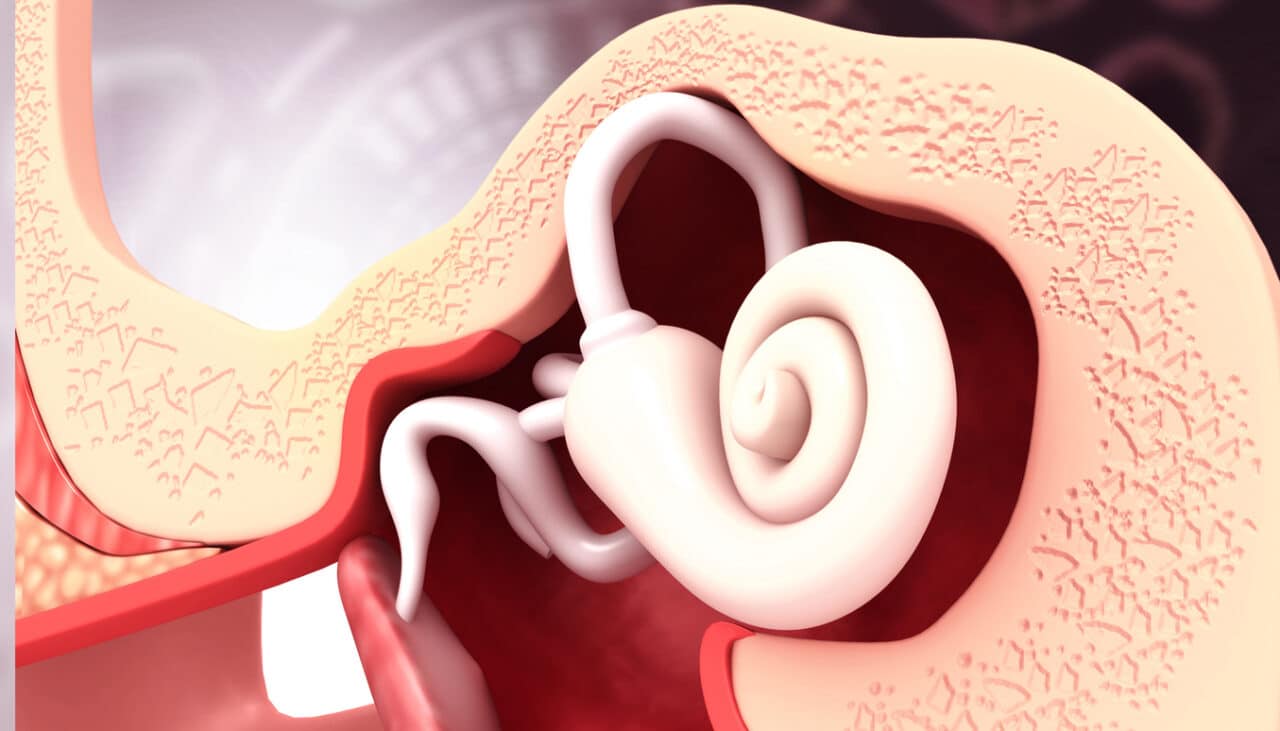The auditory system consists of the outer, middle and inner ear, each tirelessly working to deliver your favorite music, the soothing sound of wind rustling through the leaves at Long Bridge Park and more. However, if any part of this intricate system fails, it can lead to hearing loss. Let’s explore the inner ear’s anatomy, understand how damage can cause hearing loss and discover how hearing aids can improve your communication clarity.
The Inner Ear’s Auditory System

The inner ear is divided into two critical components: the auditory system and the vestibular system. The vestibular system detects your body’s position in space to help keep you balanced. The auditory system, consisting of the cochlea and auditory nerve, delivers sound.
The cochlea, a spiral-shaped, fluid-filled structure in the inner ear, is lined with approximately 18,000 tiny hair cells responsible for transmitting sound to the brain. When sound enters the cochlea from the middle ear, it causes the fluid inside to move, which in turn stimulates these hair cells. This movement generates electrical signals that travel via the auditory nerve to the brain’s temporal lobe, where they are interpreted as sound.
How Does Inner Ear Hearing Loss Occur?
Sensorineural hearing loss (SNHL) is the most common type of permanent hearing loss and originates in the inner ear. Causes of SNHL include aging, exposure to loud noises, genetics, certain illnesses and ototoxic medications (medications that can damage the auditory system). SNHL may develop suddenly or creep up over time.
While many cases of SNHL cannot be prevented, such as those caused by aging or genetics, there are a few ways you can protect your hearing, including:
- Limit exposure to noise above 85 decibels
- Wear earplugs and earmuffs
- Vaccinate against illnesses like mumps, measles, meningitis and rubella
- Be cautious with ototoxic medications, discuss alternatives with your doctor and schedule regular hearing check-ups if these medications are necessary
While SNHL has no known cure, treatment options like hearing aids can help minimize its impact on your life.
The Benefits of Hearing Aids
By amplifying sounds, making conversations clearer, restoring your confidence in social situations, helping you remain aware of your surroundings and bolstering your independence, hearing aids can dramatically improve your ability to engage with the world around you.
To learn more about managing your hearing loss, contact ENT Specialists Of Northern Virginia today to explore your treatment options with one of our trusted specialists.